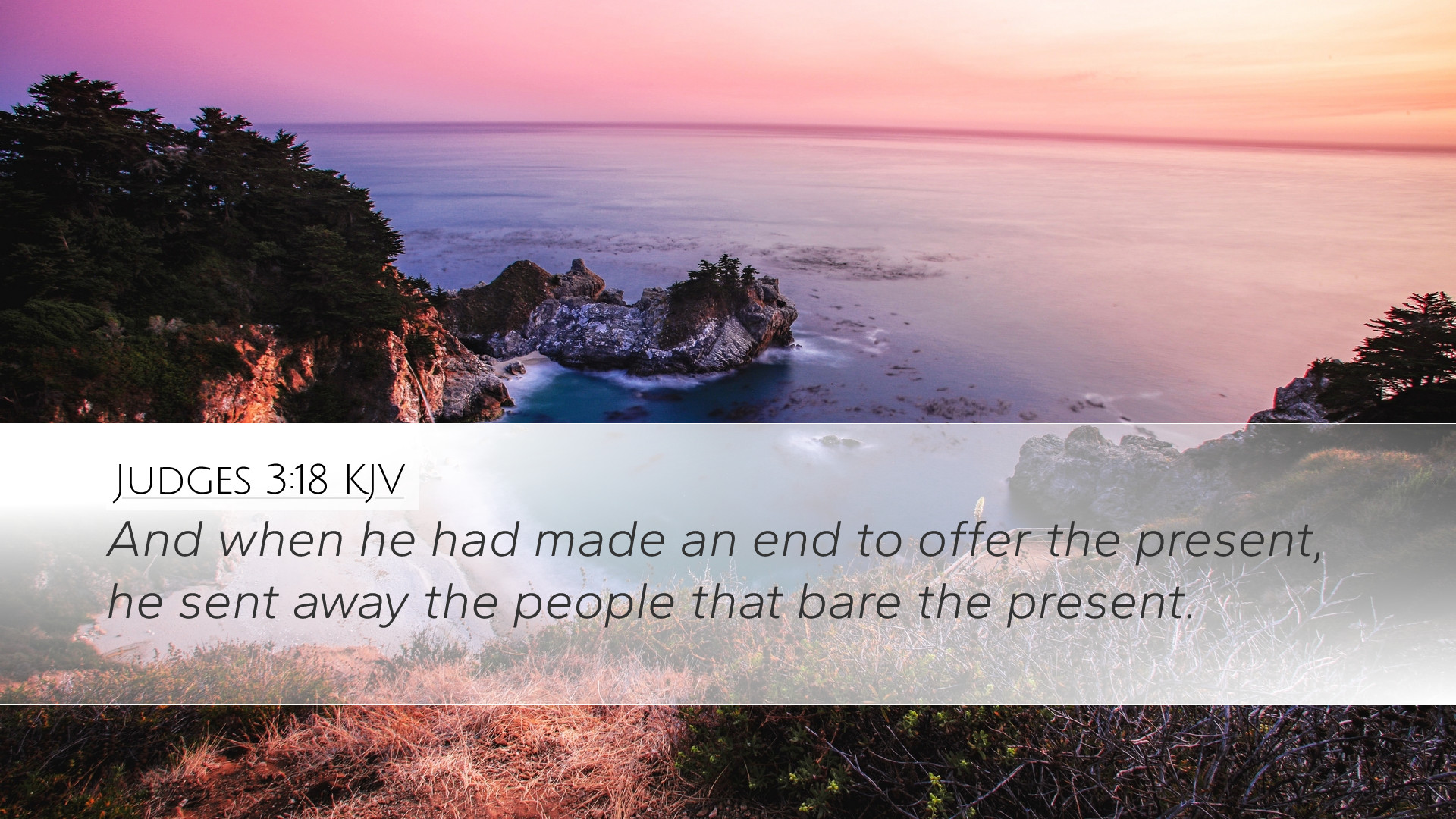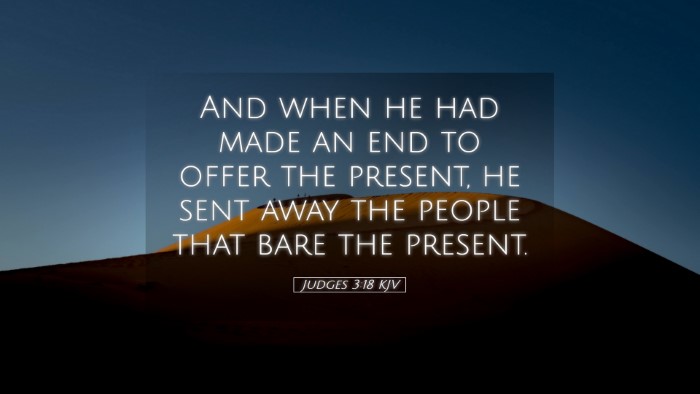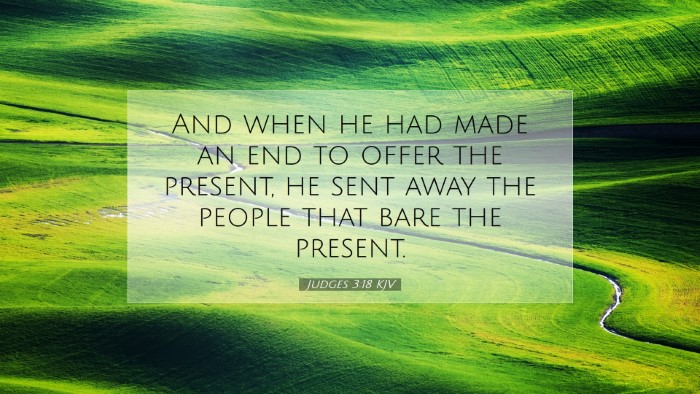Commentary on Judges 3:18
Judges 3:18 states, "And when he had made an end to offer the present, he sent away the people that bare the present: but he himself turned again from the quarries that were by Gilgal." This verse forms a pivotal moment in the narrative of the book of Judges, showcasing the interaction between Ehud, the judge of Israel, and Eglon, the Moabite king.
Contextual Overview
The period of the Judges was characterized by a cyclical pattern of Israel's faithfulness and unfaithfulness to God. After the Israelites had fallen into sin, they would face oppression from foreign nations, leading them to cry out to God for deliverance. God would then raise up a judge to lead them. Ehud's story exemplifies this cycle in Judges 3.
Exegesis of Judges 3:18
This particular verse occurs post the deliverance scheme orchestrated by Ehud, a left-handed Benjamite, and highlights the transition point in the unfolding narrative.
Ehud's Offering
Matthew Henry notes that in this verse, the mention of a "present" indicates an act of honor and respect towards Eglon. It was customary in ancient Near Eastern cultures to offer gifts to rulers as a sign of allegiance, and Ehud's role in this act must be understood not just as compliance but also as strategy.
Symbolism of the Present
Albert Barnes elaborates on the present saying, "The present is a symbol of tribute and subjugation." It indicates that the Israelites were outwardly submitting to Moabite rule even as they prepared for inner rebellion through Ehud.
Turning from the Quarries
The quarries mentioned in this verse hint at the locale of Gilgal, a central place for Israel’s camp. Adam Clarke asserts that "This retreat symbolizes a calculated withdrawal, one that precedes significant action against the oppressor." This indicates that Ehud’s actions were deliberate—he was not merely escaping but positioning himself for what was to come.
Theological Implications
This verse also carries deep theological connotations regarding God’s sovereignty and providence. Pastoral reflections can highlight how God orchestrates events even in the midst of chaos, utilizing unlikely instruments for His purposes.
God's Sovereignty
Judges 3:18 emphasizes the idea that God can use a simple act of tribute to set the stage for the redemption of His people. As noted by Henry, "It was God who raised Ehud for such a cause, proving that He often chooses the weak things of the world to confound the mighty."
Human Agency
In focusing on Ehud's agency, we can draw parallels to human responsibility in the face of oppression. Beneath the divine providence, there lies a narrative of human choice and courageous action. Barnes points out, "Ehud’s willingness to act in faith—igniting hope for Israel’s deliverance—is worth noting."
Application for Today's Believers
The lessons from Judges 3:18 extend beyond the historical narrative of Israel, offering rich insights for contemporary believers.
- Submission vs Rebellion: We often navigate a world where we must balance our earthly allegiances with our allegiance to God. Like Ehud, we are often called to play the long game, managing our interactions with wisdom.
- Faith in Action: This verse encourages believers to find ways to act on their faith, even when circumstances appear dire. There is a call to recognize that effective change often begins with small, purposeful acts.
- Trust in God’s Timing: Just as Ehud had to wait and prepare, believers are reminded that waiting on God’s timing is crucial. The unfolding of events in our lives may be preparing us for a pivotal moment.
Conclusion
Judges 3:18, while seemingly straightforward, is heavy with meaning and context. Through thoughtful engagement with this scripture, pastors, students, theologians, and biblical scholars can glean insights into God’s redemptive plan, the nature of leadership, and the intersection of divine sovereignty and human agency.
Ultimately, the commentary around this verse encourages a deeper reflection on our own lives—challenging us to be catalysts for change in our communities through faith, action, and obedience to God.


